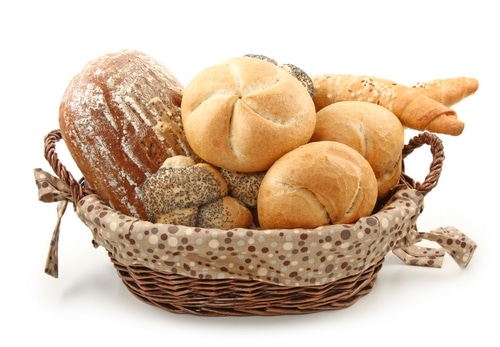 It’s an unfortunate reality that most restaurant menus don’t come with calorie counts, and looks can be deceiving when it comes to restaurant fare. Unfortunately, you can’t peek back into the kitchen and see how much oil, sugar, and salt they’re adding to your food, but chances are it’s not being prepared with your health in mind. Restaurant owners want you to enjoy the taste of their food and leave full, so they don’t mind adding a little “extra” to your plate. The key to avoiding the additional pound or two that restaurant food can put on you is to be aware. Here are five hidden calorie traps to avoid when eating out.
It’s an unfortunate reality that most restaurant menus don’t come with calorie counts, and looks can be deceiving when it comes to restaurant fare. Unfortunately, you can’t peek back into the kitchen and see how much oil, sugar, and salt they’re adding to your food, but chances are it’s not being prepared with your health in mind. Restaurant owners want you to enjoy the taste of their food and leave full, so they don’t mind adding a little “extra” to your plate. The key to avoiding the additional pound or two that restaurant food can put on you is to be aware. Here are five hidden calorie traps to avoid when eating out.
Healthy Items That Are Made Less Healthy by Sauces
Grilled, wild Alaskan salmon sounds like a healthy choice, but not if the chef covers it with a creamy sauce. Sauces to avoid when dining out include hollandaise sauce, béarnaise sauce, Alfredo sauce, heavy gravies and sauces made with cheese or butter. Some sauces that are low in fat are high in calories and carbs because they have added sugar. Some sweet sauces in Chinese restaurants can turn a relatively healthy entrée into the equivalent of dessert. Ones to watch out for are duck sauce, plum sauce, hoisin sauce, and sweet and sour sauce. To avoid hidden calories, ask for the sauce on the side so you can control the amount.
A Healthy Salad That Isn’t
Salads have a “health halo” surrounding them. Before congratulating yourself or choosing an entrée salad over a conventional entrée, think beyond the lettuce and cucumbers. The calories in a salad add up quickly when restaurants throw in candied nuts, croutons, crispy noodles, gobs of cheese, fried or breaded chicken strips and drown it in a creamy dressing. Get prepared for calorie shock. The Quesadilla Explosion Salad at Chili’s has over 1,300 calories. It would take a pretty unhealthy entrée to top that. Ask for questionable salad ingredients to be placed on the side along with the dressing so you can control portions.
Those Unhealthy Sides
Even if you choose the healthiest entrée on the menu, you can still lose points by choosing the wrong sides. Most entrees come with a starch, usually a potato, pasta or rice. Lighten up on the carbs by choosing a vegetable instead, and ask them to go light on the butter. You don’t need the insulin surge that comes from carby side dishes.
The Bread Basket
Restaurants want you to leave full, and they don’t want you to be hungry while you’re waiting for your meal. That’s why they start you off with a big basket of hot rolls. It’s easy to lose track of how many rolls you’re knocking down while waiting on your entrée to arrive – and who eats rolls without butter? The best way to avoid temptation is to ask your server to hold the bread basket. Sip on a cup of water or tea instead.
The Oversized Portions
Most restaurants don’t know what a portion size should look like, but you should. Most entrees are the equivalent of two servings, so you’re talking double calories. Learn to eyeball your food, and estimate how many servings you’re eating before you dig in. For example, a serving of meat should be about the size of a bar of soap, and a baked potato the size of a computer mouse. Even better, ask the waiter or waitress to box up half of what you order to take home. What you don’t see, you won’t eat.
The Bottom Line?
You’re in unknown territory when you dine in a restaurant. Be a smart restaurant consumer. Read the menu online, and plan your meal beforehand keeping these calorie traps in mind. It’s relaxing and convenient to dine out, but it’s not always healthy.
Related Articles By Cathe:
What Science Says About Overeating
5 Tips for Eating Cleanly Without Feeling Deprived
4 Traps That Sabotage New Year’s Weight Loss Goals
5 Ways to Avoid Vacation Weight Gain
4 Ways to Eat More Fruits and Vegetables When Traveling
6 Tips for Making Healthier Choices at the Grocery Store
The 5 Healthiest Salad Ingredients
5 Tips for Eating Healthy in an Italian Restaurant
Does Posting Calorie Counts on Restaurant Menus Lower Calorie Intake?

